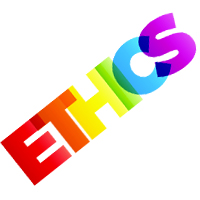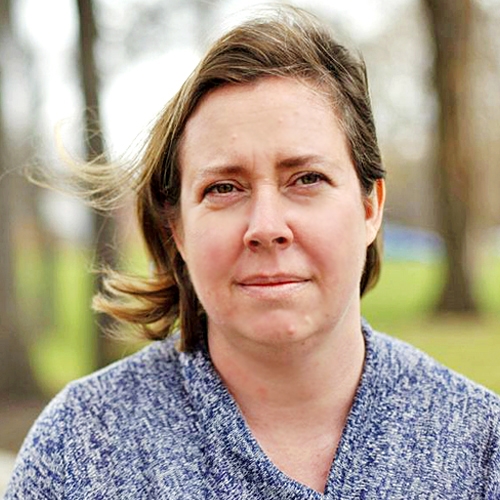
Exploring Ethics for Lactation Consultants
Welcome to your one stop shopping for E-CERPs! Along with providing IBCLC's with all of the E-Cerps necessary for re-certification, this lecture pack provides the opportunity to delve deeper into some of the hot topics in lactation ethics. From helping families online to the WHO Code to milk sharing, there are numerous situations that can present ethical challenges when working with today's breastfeeding/chestfeeding families. Join our expert speakers to learn more about how you can ensure that you are providing care in a manner that is in line with your professional code of conduct.
Contact us here if you would like to get our group rate! (available for 5 or more per group)


Fiona Woollard is an Associate Professor of Philosophy at the University of Southampton. She works in the Philosophy of Pregnancy, Birth and Early Motherhood, with a special interest in infant feeding. She argues that identifying philosophical mistakes in the way we think about maternal behaviour can help improve conversations about infant feeding decisions. Her work has been widely published in journals aimed at philosophers, medical professionals and peer supporters, and in venues aimed at a general audience. To read more about her work on infant feeding, see https://fionawoollard.weebly.com/infant-feeding.html
Objective 1: Participants will be able to describe the evidence of a perceived pressure to breastfeed that persists despite efforts at individual and organizational level;
Objective 2: Participants will be able to explain the concept of a defeasible duty and how defeasible duties are connected to guilt, blame, and requirements to provide justification;
Objective 3: Participants will be able to explain what the Duty Mistake and the Justification Trap are and how they contribute to guilt and shame surrounding the use of formula and make it harder to ensure that women are given the support and information they need to meet their feeding goal;
Objective 4: Participants will be able to discuss the practical implications of these challenges at an individual and institutional level: how should our practice and policy reflect the fact that the Duty Mistake and the Justification Trap raise barriers to fruitful conversations about infant feeding decisions?
Anecdotal evidence of the perception of pressure surrounding infant feeding decisions is easy to acquire simply by talking to new mothers. Several sociological studies report an association between decisions to formula feed and feelings of guilt, blame and failure. I connect perceived pressure regarding infant feeding decisions to a mistaken assumption that if breastfeeding benefits the child, the mother must have a defeasible duty to breastfeed. I call this the Duty Mistake. I show how the Duty Mistake contributes to guilt and shame surrounding the use of formula. It also produces what I call “the Justification Trap”: in a moralized context, requests for information or offers of support are perceived as calls for justification. This makes it much harder to ensure that women are given the support and information they need to meet their feeding goals. This presentation provides an overview of the issues and looks at how they impact the ethical responsibility of lactation professionals to promote and support breastfeeding.


Michelle Pensa Branco MPH IBCLC is a lactation consultant and public health advocate. In addition to her clinical practice, which has included in-hospital, outpatient and private practice settings, she advocates for improved maternal-child health practices at the local, national and global level. She has a particular interest in the impact of trauma to breastfeeding families, models of peer support to improve breastfeeding outcomes and the application of health communication principles to the promotion and protection of breastfeeding. Michelle serves as the Director of Peer Support Programs and provides clinical lactation expertise for Nurture Project International, the only international NGO focused exclusively on infant feeding in emergencies. With Jodine Chase, she co-founded a Canadian non-profit organization, SafelyFed Canada. She is also an active member of the Ontario Public Health Association’s Breastfeeding Promotion Working Group. Michelle has previously served as the Vice-Chair of La Leche League Canada, the Communications Director for the Canadian Lactation Consultants Association as well as the Toronto Coordinator of INFACT Canada. When she is not travelling for work, Michelle stays close to home, living with her family just outside Toronto, Ontario, Canada.
Topic: Keeping the Fox Out of the Chicken Coop: Safeguarding Your Reputation Against Baby Feeding Industry Influence - [View Abstract]
Topic: Playing Well with Others: Collaborating in High Conflict/Low Trust Settings - [View Abstract]
Topic: Watching Our Words: Is Risk-Based Language Always the Right Choice? - [View Abstract]
Objective 1: Participants will be able to describe three marketing strategies used in the marketing of breastmilk substitutes;
Objective 2: Participants will be able to identify the specific violations of the Code in three types of marketing mediums targeting healthcare workers;
Objective 3: Participants will be able to Describe the components of a Code analysis, using the example checklist provided
Adhering to the International Code of Marketing of Breastmilk Substitutes and relevant subsequent WHA resolutions (the Code) is a personal and professional obligation for IBCLCs and breastfeeding helpers and advocates. Beyond that, we are often called upon to provide advice and support to the organizations we work for and support in respect of their Code obligations.


Barbara D. Robertson, IBCLC, has been involved in education for over 34 years. She received a Bachelor’s degree in Elementary Education in 1988 and her Master’s in Education in 1995. Barbara left teaching elementary students in 1995 to raise her two children. Barbara is now the Director of The Breastfeeding Center of Ann Arbor and of the brand new business LactaLearning.
The Breastfeeding Center of Ann Arbor will still continue to serve breast/chestfeeding families and now LactaLearning will be dedicated to all of Barbara’s professional lactation trainings. Barbara has developed two 95 hour professional lactation training, a group training and a completely self study training with Nancy Mohrbacher. Barbara’s idea of creating professional book groups has exploded with her hosting Making More Milk with Lisa Marasco, Supporting Sucking Skills with Cathy Watson Genna, Breastfeeding Answers, 2nd Edition with Nancy Mohrbacher, and new for the fall, Safe Infant Sleep with Dr. James McKenna. Barbara will be hosting a one day online conference in the fall with Lisa Marasco and Cathy Watson Genna using all of her tech savvy skills to make this a one of a kind experience. Barbara is also a speaker for hire on a wide variety of topics including Motivational Interviewing. Barbara volunteered for the United States Lactation Consultation Association as the Director of Professional Development for 4.5 years.
She just retired as Associate Editor for Clinical Lactation, a journal she helped create for USLCA. Barbara has free podcasts, a blog, and Youtube videos which can all be found on her websites lactalearning.com and bfcaa.com. She has written many articles as well. She loves working with parents and babies, helping them with breast/chestfeeding problems in whatever way she can.
Topic: Breastfeeding: Baby’s First Milestone - [View Abstract]
Topic: Clinical Assessment and Management of Low Milk Production - [View Abstract]
Topic: Deconstructing Online Messaging: Ethical Considerations - [View Abstract]
Topic: Milk Sharing and Milk Banking: Building Knowledge for Better Outcomes - [View Abstract]
Topic: The Baby's Not Gaining Weight! Now What? - [View Abstract]
Topic: The Great Nipple Shield Debate - [View Abstract]
Objective 1: The participant will be able to list at least three values of biomedical ethics;
Objective 2: The participant will be able to identify marketing tactics used to manipulate the viewer;
Objective 3: The learner will be able to apply the values of biomedical ethics to analysis as they relate to IBCLCs, to analysis various online media
If it is on the internet, it must be true! Not. Online media may present as an entertainment video but really be a commercial for a product. A publication can appear to a research article but actually be an opinion blog. We will identify ways in which businesses try to manipulate the viewer. Underlying messages will be decoded using the values of biomedical ethics and marketing techniques. Online breastfeeding media will be analyzed through the lens of biomedical ethics to uncover their true meaning.


Nancy Mohrbacher was born and raised in the Chicago area, where she lives today. She is a board-certified lactation consultant who has been helping nursing mothers since 1982. Her breastfeeding books for parents and professionals include Breastfeeding Answers Made Simple and its Pocket Guide; Breastfeeding Made Simple(with Kathleen Kendall-Tackett); Working and Breastfeeding Made Simple; and Breastfeeding Solutions and its companion app for Android and iPhone.
Nancy currently contracts with hospitals to improve breastfeeding practices, writes for many publications, and speaks at events around the world. Nancy was in the first group of 16 to be honored for her lifetime contributions to breastfeeding with the designation FILCA, Fellow of the International Lactation Consultant Association.
Topic: Applying Bioethics to Milk Banking and Milk Sharing - [View Abstract]
Topic: Concerns About Low Milk Production - [View Abstract]
Topic: Transitioning the Preterm Infant to the Breast - [View Abstract]
Topic: Using Gravity-Assisted Positions to Prevent Early Breastfeeding Problems - [View Abstract]
Topic: What Mothers Need to Exclusively Breastfeed - [View Abstract]
Topic: What's New In Lactation - [View Abstract]
Objective 1: Participants will be able to describe the 7 basic principles of biomedical ethics and how to apply them to milk sharing;
Objective 2: Participants will be able to explain how the risks of peer-to-peer milk sharing compare to the risks of using formula;
Objective 3: Participants will be able to discuss what information parents need when evaluating milk-sharing options
This session provides a summary of the 7 universal principles of bioethics and examples of how they apply to milk banking and milk sharing. It also offers an analysis of the evidence that supports the use of pasteurized donor human milk with preterm babies and examines the range of milk-sharing options and the ethical and practical considerations for parents and breastfeeding supporters.


Robyn Lee is an Assistant Professor in Sociology at the University of Alberta. Previously, she was visiting scholar at the Brocher Foundation (Geneva, Switzerland) and a Banting Postdoctoral Fellow at Brock University. She holds a PhD in Social and Political Thought from York University. Her research interests include contemporary social theory, gender, sexuality, care work, and embodiment. She is the author of The Ethics and Politics of Breastfeeding: Power, Pleasure, Poetics, published by University of Toronto Press (2018) and has published articles in journals including Feminist Theory, Hypatia, Gender, Work, and Organization, and Family Theory and Review.
Objective 1: Participants will be able to identify some contemporary ethical questions relating to breastfeeding;
Objective 2: Participants will be able to recognize broader social determinants and social structures that relate to these ethical issues;
Objective 3: Participants will be able to gain understanding of the contexts and relationships between ethical issues related to breastfeeding
This presentation will explore some contemporary ethical issues in breastfeeding, situating them in social contexts. Issues to be explored will include social responsibilities vs individual responsibilities, social disparities and inequalities, and gender identity/expression.
Accreditation
CERPs - Continuing Education Recognition Points GOLD Conferences has been designated as a Long Term Provider of CERPs by the IBLCE--Approval #CLT114-07 5 CERPs (5 E-CERPs) The GOLD Learning Ethics for Lactation Consultants Lecture Series is comprised of 5 presentations by leading Lactation Consultants in the field of ethics and inequities and law. These lectures have not been previously used in any of our GOLD Lactation Conferences.
Additional Details
Apply E-CERPs towards your IBCLC Recertification Requirements.
Tags / Categories
(IBCLC) Clinical Skills, (IBCLC) Ethical and Legal Issues, (IBCLC) Public Health and Advocacy, (IBCLC) Research, Ethics for Lactation Professionals
How much time do I have to view the presentations?
- The viewing time will be specified for each product. When you purchase multiple items in your cart, the viewing time becomes CUMULATIVE. Ex. Lecture 1= 2 weeks and Lecture Pack 2 = 4 Weeks, you will have a total of 6 weeks viewing time for ALL the presentations made in that purchase.
- Time for viewing the talks begins once you purchase the product. For Live Webinars & Symposiums, the viewing period begins from when the live event takes place. Presentations can be accessed 24/7 and can be viewed as many times as you like during the viewing period.
What are bundled lectures?
- Presentations may be available individually or via a bundled package. Bundled lectures are a set of lectures that have been put together based on a specific category or topic. Some lectures will be available in both individual and lecture form, whereas others will be available only via a bundled lecture pack.
Will there be Handouts?
- YES! Each lecture comes with a PDF handout provided by the Speaker.
Some lectures include a Q&A, what does that mean?
- During our online conferences, presentations that occur live are also followed by a short 15 minute Question & Answer Session. The Speaker addresses questions that were posted by Delegates during the presentation. We include the recording of these Q&A Sessions as a bonus for you.
How can I receive a Certificate?
- If this presentation offers a certificate, once you are done viewing the lecture or the lectures within a bundle, submit your attendance record in order to be able to download your certificate. You'll be able to see which credits are offered for the lecture by hovering over the "Credits Available" link within the "Speakers & Topics" tab.
Professionals that selected this package also viewed

|
|

|









